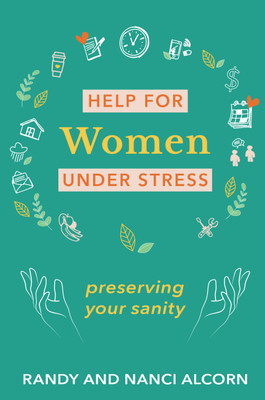The Greek word for worry means literally “to divide the mind.” The worried mind is a torn, and therefore worn, mind. It is a peaceless mind that doesn’t allow itself to rest.
Ironically, much of our worry is unrealistic. We “catastrophize” by making the worst of situations and anticipating the worst possible outcome. Montaigne, the French philosopher, put it this way: “My life has been full of terrible misfortunes—most of which have never happened.”
Much worry comes from carrying today the burdens of yesterday and the dreads of tomorrow. This is unnecessary and unhealthy. Lessons from the past can be learned without living in it. We can plan for the future without dwelling on it. Now is all we have. Let’s invest it, enjoy it, profit from it. Let’s not lose it to worry.
The most striking characteristic of worry is its absolute impotence. No tornado has been stopped, no drought averted, no plane crash prevented. No child was kept from falling off his bike, no teenager kept from skipping classes or trying drugs. No heart attacks have ever been avoided through worry (though a great number have no doubt been caused by it).
My brother was missing for seven years. I loved him and was deeply concerned for him and his well-being. I had to face the possibility of many unpleasant outcomes, including his death. When my concern degenerated into worry, I had to remind myself that my worry would not do him one shred of good, and it would do me and my family considerable harm. That realization relieved me of the sense of obligation to worry, and freed me to move on. I was overjoyed when, in an act of providence, God reunited me with my brother. But no matter what had happened, my worry would have accomplished nothing. Prayer matters, love matters, but worry matters only in a negative sense.
Of course, many things do merit our attention. Concern for our family can help us take action to enhance their safety. But concern is not worry. While concern spurs us to take productive, positive steps, worry is a counter-productive and unhealthy reaction that inhibits constructive action.
So how can we deal with worry?
1. Rehearse God’s past acts of faithfulness to you.
Recount how He provided for you in difficult times. Will He let you down now? Of course not!
Praise the LORD, O my soul;
all my inmost being, praise his holy name.
Praise the LORD, O my soul,
and forget not all his benefits.
(Psalm 103: 1–2)
2. Count your blessings, not your burdens.
You’ll find you have much to be thankful for. Worry rarely takes root in a thankful heart.
3. Bring your worries to God in prayer.
“Cast your cares on the LORD and he will sustain you” (Psalm 55:22). “Cast all your anxiety on him because he cares for you” (1 Peter 5:7)
There are several directions we can cast our worries. We can cast them on ourselves, creating guilt, fear, depression, fatigue, ulcers, and illnesses. We can cast our worries on others in a negative way, in anger and resentment. This will alienate them from us, and likely contribute to their worries while not alleviating ours.
We can also share our burdens with others in a positive way. “Carry each other’s burdens, and in this way you will fulfill the law of Christ” (Galatians 6:2).
Best of all, we can do what Psalm 55:22 and 1 Peter 5:7 tell us to do—cast our cares on the Lord. His heart is infinitely big and His shoulders are infinitely broad. Philippians 4:4–7 says it all:
Rejoice in the Lord always. I will say it again: Rejoice! Let your gentleness be evident to all. The Lord is near. Do not be anxious about anything, but in everything, by prayer and petition, with thanksgiving, present your requests to God. And the peace of God, which transcends all understanding, will guard your hearts and minds in Christ Jesus.
Long ago there was a stress expert who never charged for his lectures and whose convention centers were the dusty roads and green fields of the countryside. This is what He said about worry. Though many have tried, no one has ever improved on it:
Therefore I tell you, do not worry about your life, what you will eat or drink; or about your body, what you will wear. Is not life more important than food, and the body more important than clothes? Look at the birds of the air; they do not sow or reap or store away in barns, and yet your heavenly Father feeds them. Are you not much more valuable than they? Who of you by worrying can add a single hour to his life?
And why do you worry about clothes? See how the lilies of the field grow. They do not labor or spin. Yet I tell you that not even Solomon in all his splendor was dressed like one of these. If that is how God clothes the grass of the field, which is here today and tomorrow is thrown into the fire, will he not much more clothe you, O you of little faith? So do not worry, saying, “What shall we eat?” or “What shall we drink?” or “What shall we wear?” For the pagans run after all these things, and your heavenly Father knows that you need them. But seek first his kingdom and his righteousness, and all these things will be given to you as well. Therefore do not worry about tomorrow, for tomorrow will worry about itself. Each day has enough trouble of its own. (Matthew 6:25–34)
Photo credit: AndrewMark via sxc.hu





